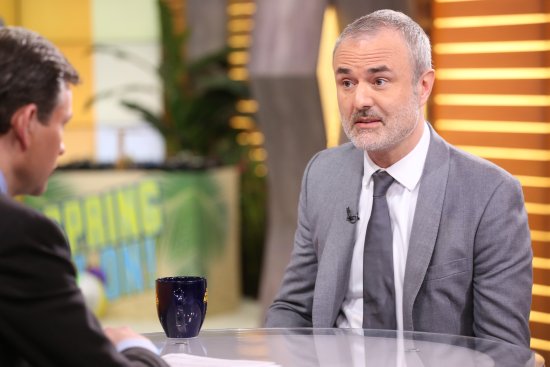
'There was no better way to get ahead there than by publishing a big scoop, one that upset powerful people'
Gawker.com, the eponymous flagship site of Gawker Media, shut down Monday, following the sale of the sale of the 14-year-old media company to Univision for $135 million in a bankruptcy auction last week.
“It is the end of an era,” site founder Nick Denton wrote in a farewell post.
The sale of the company and the shut down of Gawker.com was caused in large part by losing a $140 million invastion-of-privacy lawsuit to Terry “Hulk Hogan” Bollea in March. It was later revealed that billionaire entrepreneur Peter Thiel had helped fund the lawsuit.
“In cultural and business terms, this is an act of destruction, because Gawker.com was a popular and profitable digital media property—before the legal bills mounted,” Denton wrote. “Gawker will be missed. But in dramatic terms, it is a fitting conclusion to this experiment in what happens when you let journalists say what they really think.”
In an article last week, TIME writer Jack Dickey wrote the following about his experience working for Deadspin, Gawker Media’s still-operating sports site.
[time-brightcove not-tgx=”true”]I worked at Deadspin from 2011 to 2013 and did so blissfully unaware (as did many of my coworkers) of which advertisers paid our salaries or who Denton’s friends were. There was no better way to get ahead there than by publishing a big scoop, one that upset powerful people. Probably the biggest story we published while I was there was one I co-wrote, about Manti Te’o, the All-American linebacker at Notre Dame whose girlfriend’s death had featured prominently in many meaty stories about his season and his life. We revealed that the girlfriend had never existed. In previous years, Deadspin had exposed Brett Favre’s penis (in the process of exposing that he had sexually harassed a woman who worked for the New York Jets) and the finances of professional sports franchises. All of the titles produced stories like these, from Gawker’s revelation that the mayor of Toronto smoked crack to Jezebel’s documentation of how extensively fashion magazines photoshopped their cover subjects to Gizmodo’s surfacing of an iPhone before it hit the market.
Some of these stories any outlet would have chased and published. But others could be touched first only by Gawker sites, unencumbered as they were by financial relationships with major entities. The company’s goals flowed from its editorial mission rather than its business aims. Even when Gawker announced aspirations to transcend publishing and become a major tech player, those initiatives never came together well enough to displace journalism as the company’s primary business.
In their pursuit, the Gawker sites occasionally and conspicuously crossed the line they toed, and the ensuing drama could overshadow the work. (That thread spans most all of the company’s run, from a dire CNN hit in 2007 about a celebrity-location spotter to a post last summer about a media executive and an escort that led to a staff mutiny.) The house style could turn mean and prurient and knee-jerk and some writers would too often punch down.
But the sites were at heart a life-affirming throwback, a mid-size and profitable media entity driven by a desire to hold the powerful to account.
TIME Ideas hosts the world's leading voices, providing commentary on events in news, society, and culture. We welcome outside contributions. Opinions expressed do not necessarily reflect the views of TIME editors.